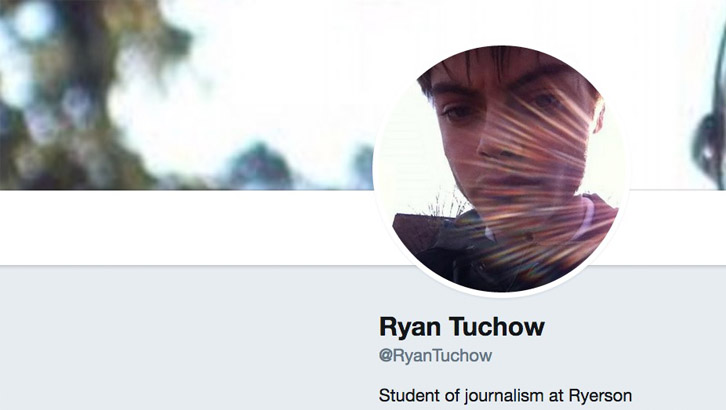By: Ryan Tuchow
At the Carlton Cinema’s in the evening of July 8th the final screenings of the 13th Annual ReelHeART International Film and Screenplay Festival took place. The theme of the nights films came from a quote by author and Academy Award Nominee Pat Conroy who once said, that “Without music life is a journey through a desert.”
Both films to be screened were documentaries that showcased the beauty of music and the people behind it. The first film to be screened was entitled Montage: Great Film Composers And The Piano a shorter documentary that was close to 30 minutes in length which was making its Toronto premiere at ReelHeART. It was directed by Ben Proudfoot from the United States and after the film Don Davies, the composer for many films, among them the music heard in The Matrix movies, was called. He spoke about his process and how he got involved in the project.
The film was nominated for Best Documentary Short, Best Music or Dance Related Film, Best Editing, Best Cinematography, and Best Sound.
The story of the film is around how famed pianist Gloria Cheng got six of the worlds most well-known film composers to write a piece for a solo piano. The film is shot entirely in black and white, and it almost seems as if the two colours of the piano blends into the world of these artists.
Some of the composers take to the challenge with gusto, some create these challenging works to push Gloria Cheng, but some, like Alexandre Desplat, are somewhat wary about writing a piece for one piano, since they are used to hiding the piano behind so many other instruments. The struggle of writing a piece of music becomes clear as the composers show their process and how they feel about the inherently collaborative art of making music that someone else will play. The audience gets a glimpse into something deeper about these composers, their styles, and what they believe music is.
And then we have the official closing film of the 13th annual ReelheART International Film and Screenplay Festival entitled Long Road Home. A documentary which is close to an hour which made its Toronto premier and is a thesis film directed by Stephanie Volk. The film began when Canadian music icon Alfie Zappacosta, who is the subject of the film, decided to work with student filmmakers, telling them they could shoot a documentary on them if they shot a recording of one of his concerts. Zappacosta was called in for a Q&A after the film and spoke about how the students asked these pointed questions but he worked to tell them the absolute truth as he saw it.
The film was nominated for Best Music or Dance Related Film, Best Editing, Best Cinematography, Best Sound, Best Canadian Film, Best Thesis Film.
It’s the story about Alfie Zappacosta, a man thrust into fame and the spotlight of music, a man who had to compromise between having to make money and being true to himself. An almost reluctant musician who is told who he has to be. The portrayal of a man who becomes infamous when all the things he fears will happen do happen and his beliefs are sacrificed to someone else’s desires.
Drugs comes in and it was easy to indulge in these things and it became normal for him. He was surrounded by enablers and across North America the drugs made things easier. “Easy to get caught up in because you’re not sure of yourself. And accolades are not deserved.”
“The eighties were a blur of crazy,” he says in the film, and in the Q&A he reiterates this when he speaks about having to leave Toronto to move to Alberta because that was the best decision for his family to get them away from a culture of enablers.
He wanted more focus on his own life. He almost missed the birth of one of his children and missed one of their birthdays. But his daughter believes that his being out was necessary for him for two reasons, which is that, “This is who he is,” as he says in the film, “he has to support his family.”
Zaapacosta explains how he is constantly learning and forced to experiment and push himself to perform and do different things. Playing the lead in musicals such as Evita where he says he realized how out of his depth he was and how they wanted him because he was known enough to draw people to the theatre.
His central struggle is clear and carries through the film: how does he provide a life for his family while also making money.
“This business wanted to kill me. It isn’t just about doing the same thing over and over again to make a buck. It was important to me that whatever I was doing I was not getting stale. It’s enough that you’re happy with whatever you’re doing.”
Suffering through loss he finds himself. And he works hard to not let down the people he loves.
One of the most important sentiments in the film is one shared by Alfie Zappacosta’s son, Cooper who quotes his father saying that, “It doesn’t matter if you’re in school or not, but everyday you’re being tested.”
And The Long Road depicts a man who almost all of his life has been tested and who finally found the strength and self-assuredness to pass himself.
ReelHeART’s final screenings showcased the importance of art, its ability to serve as an escape, but also the struggles that lay behind it. These films help audience members to think more about the people behind the music. And the real heart that lies just beneath the notes of the great talents who were the subjects of these films.
